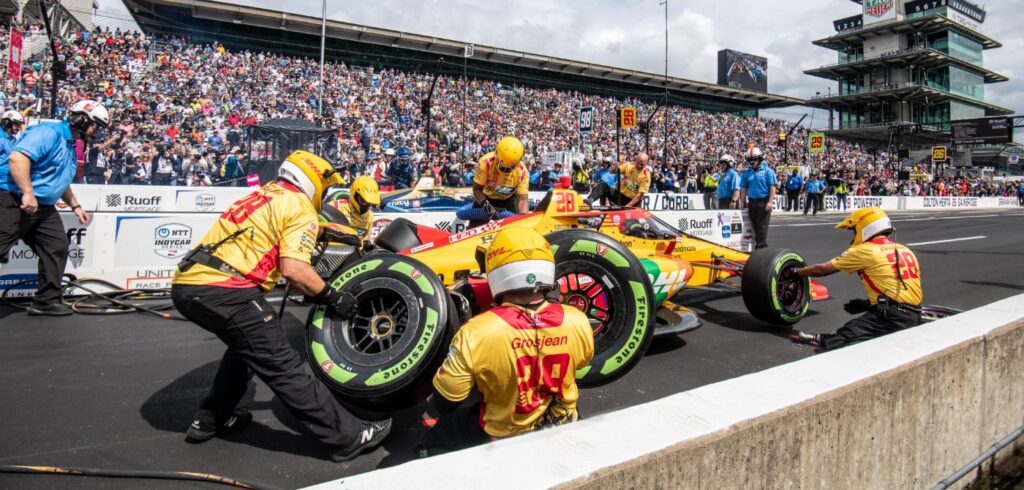Bridgestone debuted a new IndyCar tire at the recent Big Machine Music City Grand Prix in Nashville, Tennessee, which uses a sidewall made with natural rubber derived from the guayule desert shrub.
“The introduction of guayule natural rubber to America’s preeminent open-wheel racing series speaks to the confidence we have in the technology and its potential as a scalable, sustainable and domestic source of natural rubber—a vital raw material,” said Nizar Trigui, CTO and group president, Solutions Businesses, Bridgestone Americas. “This milestone represents our commitment to realizing a more sustainable future for tires, racing and mobility.”
Bridgestone states that it is using racing as a proving ground to demonstrate the performance of the rubber material, which it has been heavily researching for more than a decade. Guayule is grown and processed at the company’s R&D facilities in Arizona and made into the Firestone Firehawk alternate race tires at its Akron, Ohio, race tire production facility. The tires with sidewalls made with guayule-derived natural rubber were introduced at the Indy 500 Pit Stop Challenge in May 2022 as a first look before debuting in competition as the alternate race tire at the Nashville round of the series. Bridgestone plans to incorporate guayule natural rubber into more of its race tires in 2023.
Guayule is a heat tolerant, woody shrub that thrives in America’s desert southwest. The shrub can be farmed with existing row-crop equipment, helping to save costs for farmers. Bridgestone believes guayule rubber has the potential to have a positive economic effect while aiding in reducing the energy and other environmental impacts associated with the transportation of rubber sourced overseas.
The company launched its guayule research initiative in 2012 when it broke ground on a guayule processing and research center in Mesa, Arizona. Currently, the company operates the research center in Mesa, as well as a 287-acre guayule farm in Eloy, Arizona. To date, it has invested more than US$100m in its efforts to commercialize guayule rubber in tires by 2030.



